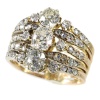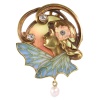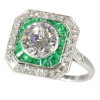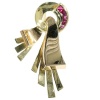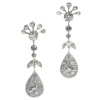Nous offrons des facilités de paiement pour le bijou de vos rêves. Demandez nous les détails.
Expédition assuré gratuite !

Antique jewelry glossary
Welcome to our extensive antique jewelry glossary with around 1,500 jewelry related entries.If you feel you are missing an explanation, feel free to let us know and we will add it.
A - B - C - D - E - F - G - H - I - J - K - L - M - N - O - P - Q - R - S - T - U - V - W - X - Y - Z all
Jewelry Glossary
Jewelry Theme Search
Bijoux Anciens Lecture




